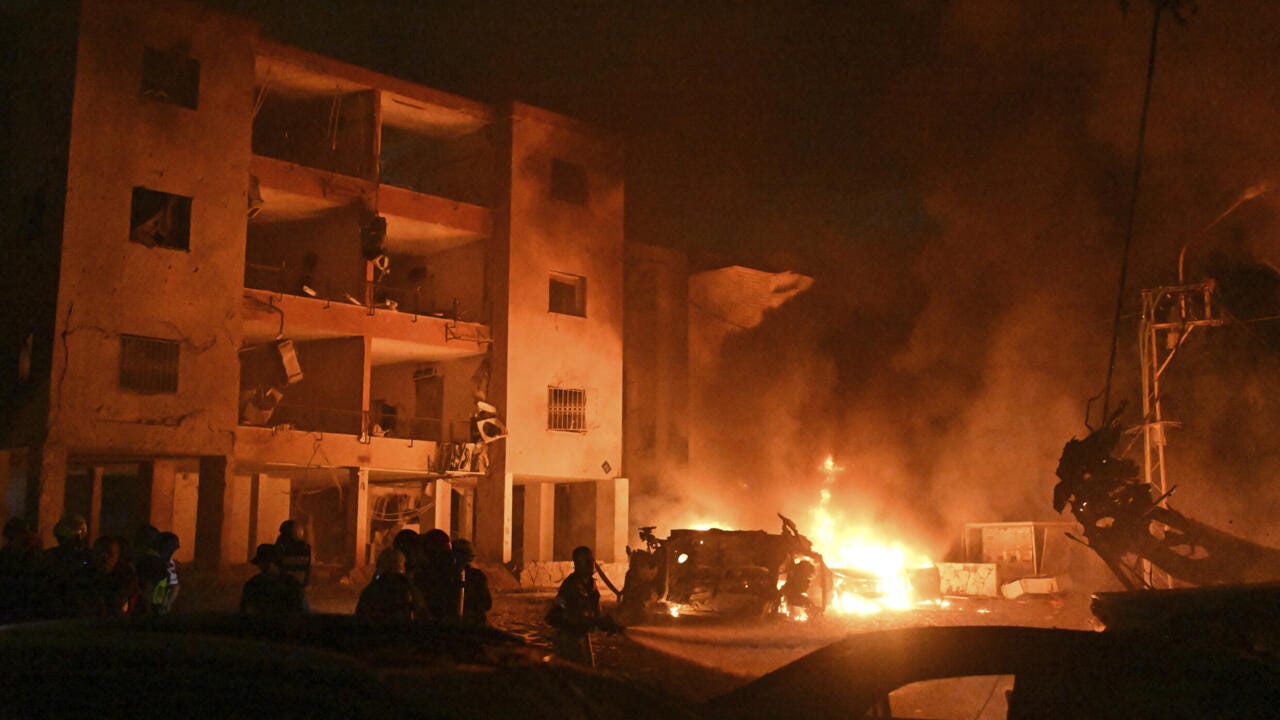Weekly Outlook: Israel-Iran inch closer to war, Russia offers to mediate, Iran-backed group in Iraq warns against US involvement (June 15–22)
A weekly outlook covering the latest security crises, geopolitical trends, and upheavals across the Middle East and North Africa.

Israel and Iran Inch Closer to War
The region has been gripped by escalating tensions between Israel and Iran. The conflict was sparked last Friday following an Israeli strike on key Iranian nuclear facilities. In response, Iran launched a series of drone and missile attacks against Israel. The Jewish state retaliated with its own missile strikes, with the latest Iranian attacks causing widespread fires in the coastal city of Haifa.
According to a CNN report, Israel’s Operation Rising Lion against Iran is expected to last “weeks, not days.” The operation has reportedly received “implicit” U.S. approval.
President Donald Trump recently suggested that the U.S. could become directly involved in the conflict.
In an interview with ABC News, the president stated:
"We're not involved in it. It's possible we could get involved. But we are not at this moment involved."
Despite the rising hostilities, President Trump has expressed hope for continued negotiations with Iran on a new nuclear deal. However, a planned round of talks scheduled for the past weekend in Oman was cancelled by Iran in response to Israel’s strikes. Tehran accused the U.S. of aiding the Israeli attacks.
For now, tit-for-tat strikes between Israel and Iran are expected to continue. The longer the hostilities persist, the greater the risk of an all-out war—one the U.S. may find itself drawn into.
Russia Offers to Mediate Between Israel and Iran
Posting on Truth Social, President Trump revealed that he had a lengthy phone call with Russian President Vladimir Putin, during which the two leaders discussed the growing conflict between Israel and Iran.
They also reportedly discussed the possibility of a ceasefire in the ongoing war between Ukraine and Russia.
“He feels, as do I, this war in Israel-Iran should end, to which I explained, his war should also end,” Trump said.
In recent years, relations between Moscow and Tehran have deepened amid shared opposition to U.S. policy. Iran has supplied drones to Russia, which have been used against Ukrainian forces.
President Putin had previously offered to mediate nuclear negotiations involving Iran. He has now extended that offer to include mediation between Iran and Israel. Notably, Israel still maintains diplomatic relations with Russia.
Any genuine steps toward de-escalation will likely require pressure from both regional and international actors to deter continued strikes from both sides.
Iran-Backed Group in Iraq Warns Against U.S. Involvement
In the wake of the initial Israeli strikes, Kataib Hezbollah—an Iran-backed Iraqi Shia militia—warned the U.S. against intervening in the conflict. The group threatened to target American forces and assets across the region.
“We are closely monitoring the movements of the American enemy's army in the region,” said Kataib Hezbollah Secretary-General Abu Hussein al-Hamidawi. “If America intervenes in the war, we will act directly against its interests and bases spread across the region without hesitation.”
Throughout 2024, Kataib Hezbollah and other Iran-aligned militias launched frequent attacks on U.S. forces in Iraq in response to American support for Israel’s war in Gaza.
According to an AP News report, three drones were recently launched targeting the U.S. air base Ain al-Asad in western Iraq.
While no group has claimed responsibility, past incidents suggest Iran-aligned militias were likely behind the attack.
Previously, I speculated that if tensions between Iran and Israel continued to escalate, Iraq would find itself in the crosshairs, given its alliances with both the U.S. and Iran. If Kataib Hezbollah and similar militias follow through on their threats, Iraq could once again be drawn into conflict—just as it struggles to recover from years of war.




